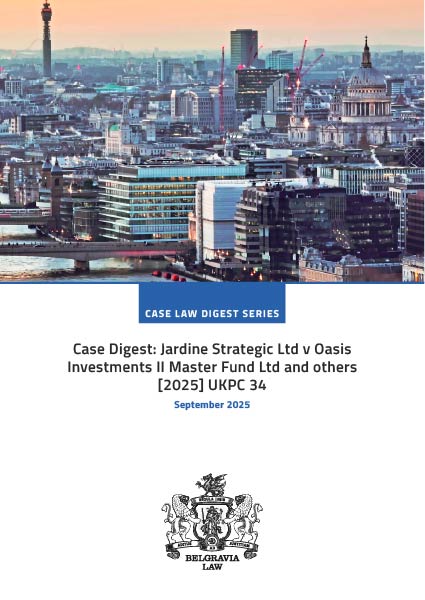Legal Updates In The UK
High Court Confirms Fraudulent Final Judgments Can Be Set Aside Under CPR 3.1(7)
The High Court has confirmed that its discretion under CPR 3.1(7) extends to setting aside final judgments obtained by fraud, without requiring a defendant to commence fresh proceedings. The ruling in UK & EU Claim Lawyers LLC v Enterprise Rent-A-Car (UK) Ltd [2025] EWHC 2317 (Ch) highlights the court’s readiness to prioritise fairness over finality when dishonesty is at play, while also shedding light on vulnerabilities within online claims systems.

The dispute stemmed from a fly-tipping investigation after the claimant returned a hired van and left cardboard inside. Four separate claims followed, two of which were brought by the claimant personally and another by PUCC Ltd (“P”), which sought over £10,000 in compensation. In the online Civil National Business Centre (“CNBC”) system, P entered judgment based on an alleged admission of liability, despite no evidence that the defendant (Enterprise) had ever consented.
Enterprise applied to have two judgments set aside and argued that all four claims should be struck out. The judge noted that, at the time, the online system allowed claimants to enter judgments without proof of consent — a defect since rectified.
Turning to CPR 3.1(7), the court acknowledged that its power to revoke or vary orders is usually exercised sparingly, given the importance of finality. Previous authority (Terry v BCS Corporate Acceptances Ltd [2018] EWCA Civ 2422) underscored the rarity of such interventions, though the Supreme Court in AIC Ltd v Federal Airports Authority of Nigeria [2022] UKSC 16 had signalled a broader approach in exceptional circumstances.
Here, HHJ Pearce found that where finality was achieved by fraud — in this case, the false assertion of an admission — the court’s discretion could properly be invoked. The judgment obtained by P and one other claim, were set aside. All four claims were struck out as an abuse of process.
The decision reaffirms that while finality of litigation remains a cornerstone of civil procedure, it cannot be used as a shield for fraudulent conduct. For practitioners, it illustrates the court’s willingness to intervene under CPR 3.1(7) where dishonesty undermines the integrity of proceedings, particularly in the context of online claims.















